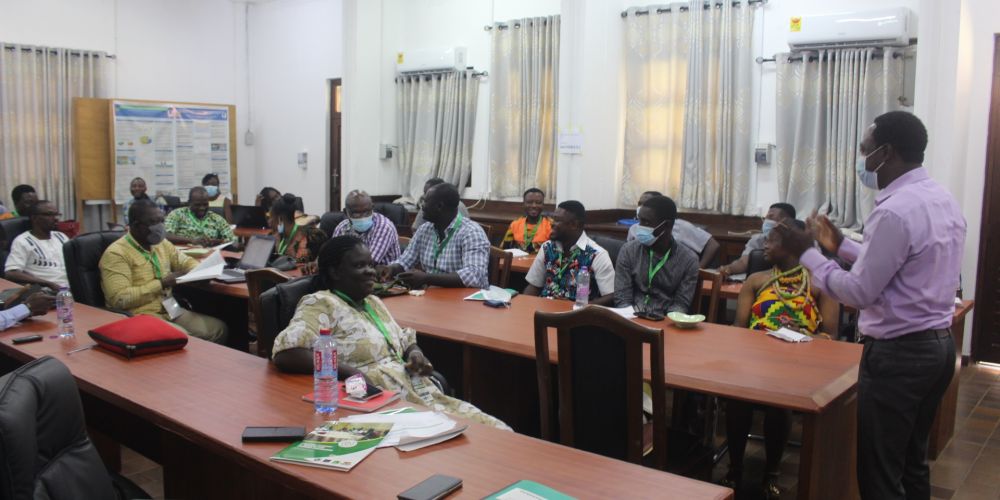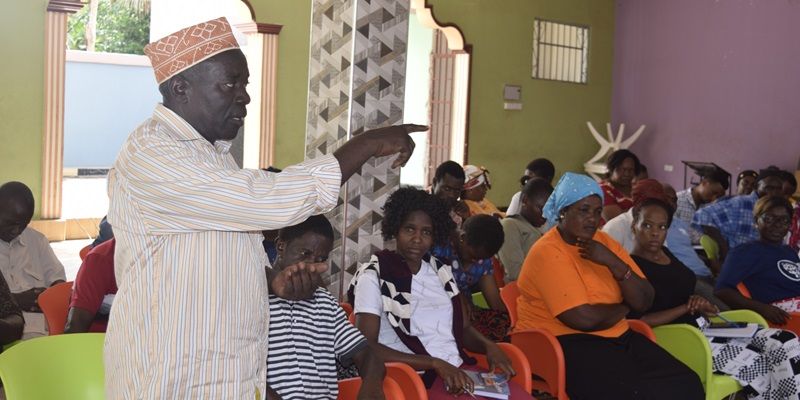Across Africa, smallholders or subsistence farmers are the majority. While small scale farmers are regularly celebrated in the rhetoric from governments and corporations – after all, they make up a large part of the electorate and of consumers – the reality is very different.
The pressure to grow more food is forcing a move to larger scale farming, seen as more efficient and more able to attract investment. In policy circles, small-scale farmers do not have an equal place at the table and their voice is rarely heard. The risk is that they are seen as the past, rather than the future of farming.
What farmers often lack is robust evidence that shows the benefits of small-scale farming and how it can contribute to the food system in a sustainable way, generating locally appropriate food in ways that value the contributions of food producers themselves and their knowledge. Smallholders rarely have the opportunity to frame the research questions that are relevant to them and to investigate the issues that concern them.
Equal partners in research

Caption: Delivering training at the workshop hosted by the Peasant Farmers Association of Ghana. Credit:@PFAGhana on X.
In Ghana and Tanzania, a research project led by the University of Leeds sought to change this, by bolstering equitable research collaborations between universities and farmers organisations in both countries.
In Ghana, the project brought together academics from the University of Cape Coast, University of Development Studies and the University of Ghana and representatives of the Peasant Farmers Association of Ghana (PFAG).
In Tanzania, the network partners came from the University Dar es Salaam, Sokoine University of Agriculture and the National Network of Small-Scale Farmers Groups in Tanzania (MVIWATA).
The idea was to provide training to early career researchers and farmers groups to help them work more closely together; to identify research questions, co-design the research, collect and analyse data and use the findings to influence policy.
Professor Anne Tallontire who led the project from Leeds, explains: “Our role was to facilitate the training and research, to advise on the approach and structure. For the project to succeed, both elements needed to be developed and delivered locally, with Leeds researchers purely in a supportive role.”
Around 20 to 30 delegates, both men and women, attended the ten-day training programmes in each country. The sessions were a mix of in-person and hybrid, allowing some elements to be delivered by African specialists in the field from around the world, with input also from farmers’ organisations in Brazil and Venezuela. The issues covered included access to and use of seeds, land ownership, finance and credit informed by political economy and agro-ecology perspectives. Each programme also included a field visit and sessions to brainstorm ideas for research projects.
Developing skills and expertise

Caption: Lively discussion in Tanzania workshop. Credit: @MVIWATA on X.
Those attending from the universities were mainly those who’d graduated recently with either a Masters or PhD or newly appointed lecturers who were building their research expertise.
Following the workshop, the delegates could apply for funded internships, with eight successful applicants in Ghana and 12 in Tanzania. The projects were short, involving a maximum of two weeks’ field work, jointly supervised by the farmers’ organisations and the universities. The aim was to help researchers develop the skills needed and allow the organisations to see how they might put such findings to good use.
Each project has resulted in a final report, which in Ghana are being collated into a single volume with an overview, for PFAG to use in their advocacy work. The researchers continue to work closely as a group and are drawing up a manifesto with PFAG to lay out what needs to change to ensure small-scale farming can thrive. This level of collaboration is at an earlier stage in Tanzania, where MVIWATA will share the reports and is looking to see what further research might be undertaken.
“We’re starting to see the kind of research collaboration taking root that we were aiming for,” says Professor Tallontire. “Too often research is conducted ‘for’ organisations like PFAG or MVIWATA in a more transactional relationship. But creating an equitable partnership where both sides really work together is much more likely to ensure outcomes for both parties: building research capacity in the universities and developing an evidence base for advocacy for the farmers’ organisations. And that will give both a stronger voice in policy forums.”